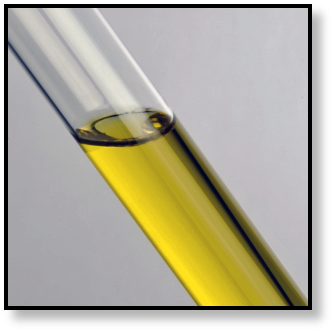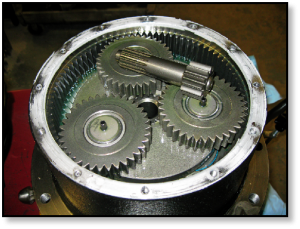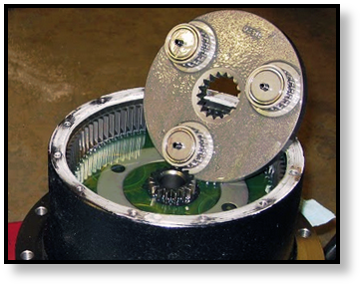Final Drive Gear Oil and Its Viscosity
Jan 2nd 2018
Gear Oil and Viscosity

Viscosity is the most important property of a lubricant. It’s actually a measure of how much a fluid is resistant to flow, or in layman’s terms, it’s the measure of the “thickness” of a fluid.
The viscosity of oil — including gear oil — is typically measured in centistokes. So what is a centistoke? Well, distilled water has a viscosity of 1 centistoke while honey has a viscosity of 10,000 centistokes, making it 10,000x thicker than water. For final drives, a typical grade of gear oil would be 80/90W with a viscosity of about 120.2 centistokes at 100°F – obviously not as thick as honey! If your gear oil is as thick as syrup or honey, you have a problem.
Why is it Important to My Final Drive?
How viscous, or thick, a lubricant is will play a major role in how much heat is generated from metal-to-metal contact and internal friction in the oil itself. It affects how easy it is to start your machine when it’s extremely cold outside. The viscosity of oil also has an effect on oil consumption.

What Happens When It Starts to Thicken?
When gear oil or gear lube begins to thicken, the results will include poor oil flow, a decrease in efficiency, and a rise in temperatures. Needless to say, these aren’t good things! The image below shows a Hy-Dash final drive that wasn’t properly maintained and, among other issues, was full of thick, smelly, burnt gear oil. This is very bad for your final drive.

What Causes Gear Oil to Thicken?
So what causes gear oil to thicken like it does? Well, the first thing is aging: as the oil begins to age, its viscosity will begin to increase. Excessive heat can speed up this process, causing the oil to oxidize and thicken more quickly. Another possible cause is topping the existing gear oil with a different grade of oil. Or, thickened gear oil could be a result of contamination by things like water, grit, metal shavings, etc.
How Can I Prevent This in My Final Drive?
We emphasize this over and over: it is very important to check and change your gear oil according to manufacturer recommendations. That includes finding out when to check the gear oil, when to change out the gear oil, and what kind of gear oil to use.
Most final drive manuals recommend consistently using the same brand of oil, but if you do have to change brands or grades, then make sure to drain the final drive completely before refilling it. Here’s another tip: if travel time is a significant percentage of your machine’s working time, then check and change the gear oil in your final drive more frequently.

Conclusion
Gear oil is meant to be somewhat thick, but when it becomes too thick because of age, overheating, or contamination, it will fail to do its job and can lead to damage of key components in your final drive. Make sure to check and change your gear oil or gear lube in your final drive or travel motor on a regular basis as part of the maintenance of your equipment.






